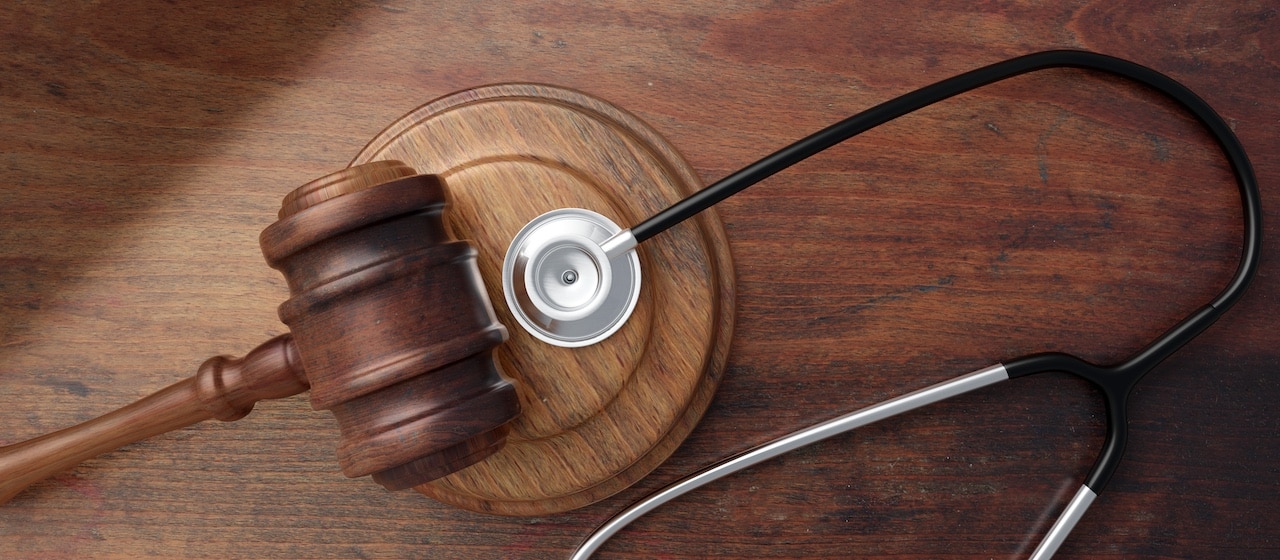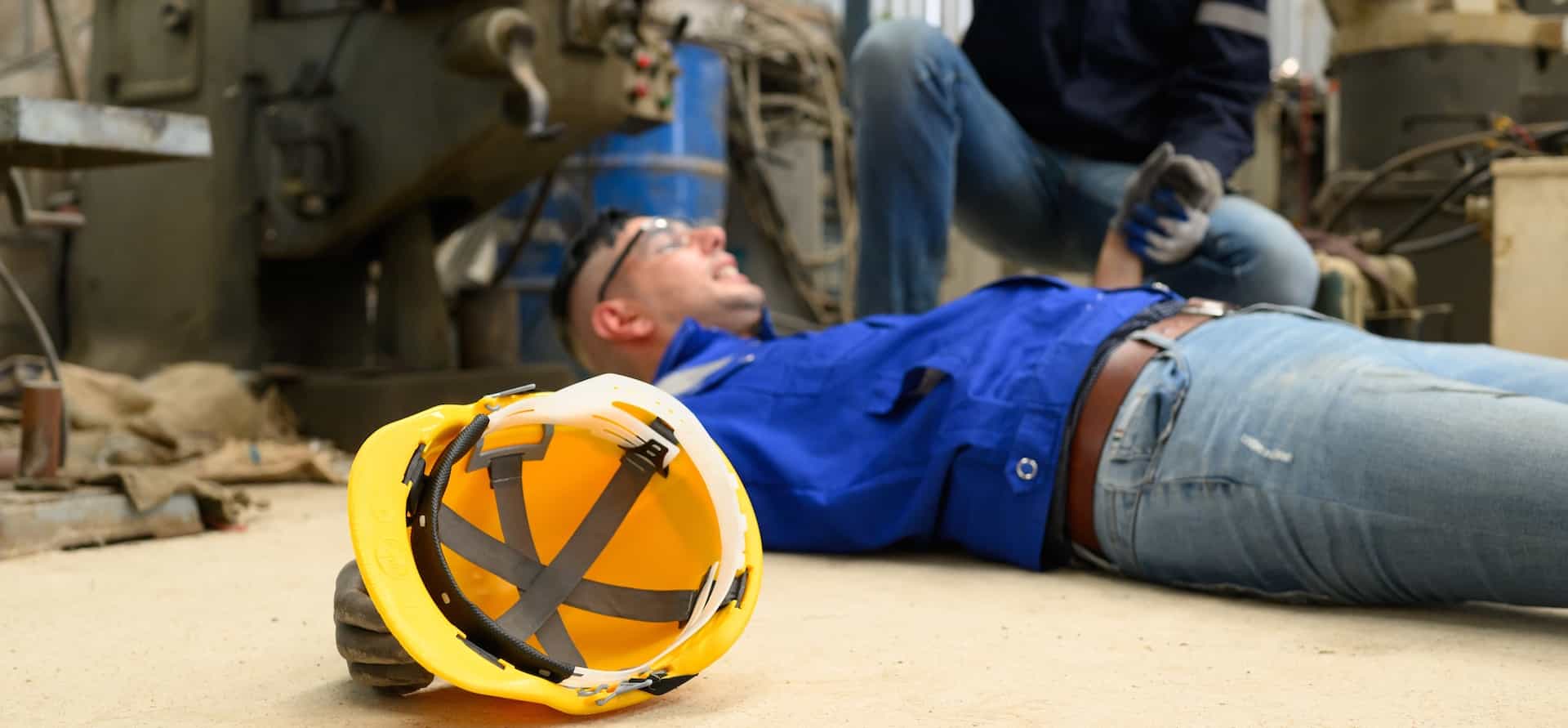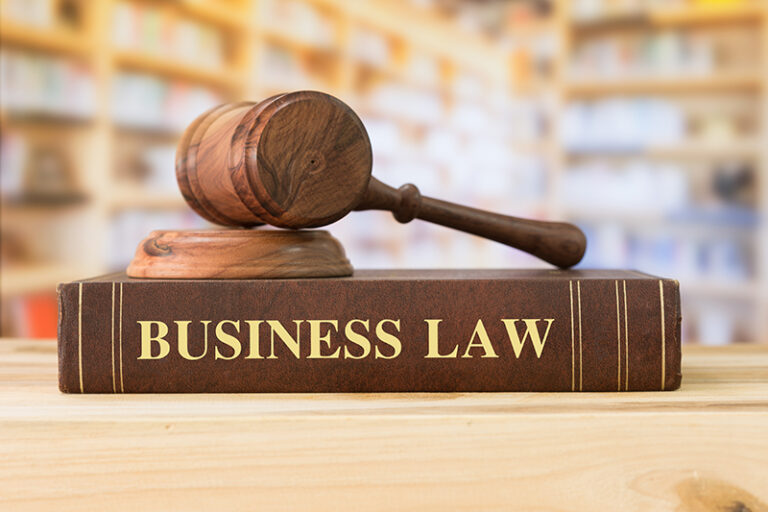Understanding Negligence and Personal Injury Law in Georgia
When life takes an unexpected turn and an accident disrupts your peace of mind, knowing your rights under Georgia personal injury law can make all the difference. At Hartley, Rowe & Fowler, P.C., we believe that every individual in Georgia deserves fair treatment, accountability, and the opportunity to seek justice when harmed by another’s carelessness.
Across the state of Georgia, from Atlanta to Augusta, Savannah to Rome, personal injury claims are rooted in one essential legal concept — negligence. Negligence forms the cornerstone of nearly every personal injury case, whether it involves a car accident on I-75, a slip and fall in a local store, or medical malpractice in a rural clinic. Understanding how to prove negligence is not just a legal exercise; it’s the key to protecting your rights, recovering damages, and rebuilding your life after an accident.
Why Negligence Is the Foundation of Most Georgia Personal Injury Claims
Under Georgia law, negligence occurs when a person or business fails to exercise reasonable care, causing harm to another. This failure can appear in many forms — distracted driving, unsafe property conditions, or ignoring safety standards. When you understand how to prove negligence in a personal injury case, you gain clarity about your options and the steps needed to hold the responsible party accountable.
Our experienced attorneys at Hartley, Rowe & Fowler, P.C. have guided countless clients through the process of establishing negligence in personal injury cases across Georgia’s counties — including Fulton, Cobb, Douglas, Gwinnett, and DeKalb. With a compassionate approach and a deep understanding of local courts and laws, our firm ensures that every client receives personalized support while pursuing fair compensation.
What Is Negligence Under Georgia Law?
In Georgia, negligence is more than just a legal term — it’s the cornerstone of nearly every personal injury case. At Hartley, Rowe & Fowler, P.C., we help injured individuals throughout Georgia understand how to prove negligence when another person or business fails to act with the care that the law requires. Whether you’re in Atlanta, Douglasville, Savannah, or Macon, knowing what constitutes negligence under Georgia law is essential to building a strong and successful personal injury claim.
Definition of Negligence and Its Role in Personal Injury Cases
Negligence under Georgia law occurs when someone fails to exercise the level of caution that a reasonably prudent person would use under similar circumstances. In simpler terms, it means that one party’s carelessness directly caused another person’s harm. Every successful personal injury case in Georgia depends on how to prove carelessness — that the defendant owed a duty of care, breached that duty, and caused damages as a result.
This legal concept applies to a wide range of accidents across the state, including car wrecks on I-85, slip-and-fall injuries in retail stores, workplace accidents in industrial zones, or cases of professional malpractice. In each of these, proving negligence is what allows victims to recover compensation for medical expenses, lost wages, and pain and suffering.
Georgia’s Legal Standard of “Reasonable Care”
Georgia courts define negligence through the standard of “reasonable care.” This means that individuals and businesses must act with the caution and attention that a reasonable person would exercise in similar circumstances. If someone fails to meet this standard — for example, by texting while driving or neglecting to repair a hazardous property condition — they may be held legally responsible for the injuries that result.
At Hartley, Rowe & Fowler, P.C., our attorneys carefully analyze each client’s situation to determine how to prove negligence under Georgia’s “reasonable care” standard. We use evidence such as eyewitness statements, accident reports, and expert testimony to demonstrate that a defendant’s actions fell short of what the law requires.
Ordinary Negligence vs. Gross Negligence in Georgia
Georgia law recognizes two main levels of negligence: ordinary negligence and gross negligence.
- Ordinary negligence involves simple carelessness — such as failing to yield at a stop sign or neglecting to clean up a spill in a public area.
- Gross negligence, on the other hand, is a far more serious form of misconduct. It reflects a reckless disregard for the safety of others, such as driving under the influence or knowingly ignoring dangerous workplace conditions.
Understanding this distinction is crucial for anyone involved in a personal injury case. The type of negligence proven often determines the potential damages available and the overall strategy your attorney will use.
Key Georgia Code Reference: O.C.G.A. § 51-1-2
The foundation of Georgia’s negligence law can be found in O.C.G.A. § 51-1-2, which defines both ordinary diligence and negligence. The statute explains that ordinary diligence is “that degree of care which is exercised by ordinarily prudent persons under the same or similar circumstances,” and that the absence of such care constitutes negligence. This legal principle guides every personal injury case filed in Georgia’s courts — from local claims in Douglas County to statewide appellate matters.
At Hartley, Rowe & Fowler, P.C., we rely on the precise language of O.C.G.A. § 51-1-2 to establish how to prove negligence for our clients. By grounding every claim in statutory authority and case precedent, our firm ensures that each case is prepared with the attention to detail and strategic insight that Georgia courts expect.
The Four Elements of Negligence Under Georgia Law
Every successful personal injury case in Georgia depends on clearly establishing the four essential elements of negligence: duty of care, breach of duty, causation, and damages. At Hartley, Rowe & Fowler, P.C., our attorneys have decades of experience helping clients throughout Georgia — from Atlanta and Mableton to Valdosta and Savannah — understand how to show negligence step by step. Whether you’ve been injured in a motor vehicle accident, a slip-and-fall incident, or a workplace injury, proving these four elements is what transforms your legal claim into a compelling case for recovery.
A. Duty of Care
Under Georgia law, every person has a duty of care — a legal responsibility to act reasonably to avoid causing harm to others. This duty varies depending on the situation but always reflects the state’s standard of reasonable care.
For example:
- A driver must follow Georgia traffic laws, stay alert, and avoid distractions while on I-75 or I-285.
- A property owner must maintain safe premises, fix hazardous conditions, and warn visitors of potential dangers.
- A business operator must ensure public safety by complying with state and local safety regulations.
At Hartley, Rowe & Fowler, P.C., we guide our clients through how to prove the existence of a legal duty by identifying the specific relationship between the injured party and the defendant. Establishing this first step sets the foundation for every personal injury case in Georgia’s civil courts.
B. Breach of Duty
Once a duty of care has been identified, the next step in proving negligence is showing that the defendant breached that duty. A breach occurs when someone fails to act with the care a reasonable person would use under similar circumstances.
Examples of breaches recognized in Georgia include:
- Texting or using a cellphone while driving, violating state distracted driving laws.
- Failing to clean up spills or repair broken flooring in a public area, leading to a slip and fall.
- Ignoring safety regulations in workplaces, construction sites, or manufacturing plants.
A successful personal injury case demonstrates that the defendant’s actions — or inactions — directly violated their duty of care. Our attorneys at Hartley, Rowe & Fowler, P.C. collect compelling evidence such as surveillance footage, maintenance records, and witness statements to show how to prove this crucial element of negligence in court.
C. Causation
Causation connects the breach of duty to the injury suffered. Georgia law divides this element into two critical parts: cause in fact and proximate cause.
- Cause in fact means that the defendant’s actions were the actual reason the injury occurred — the harm wouldn’t have happened “but for” the defendant’s conduct.
- Proximate cause means the harm was a foreseeable result of the defendant’s actions, not an unforeseeable or remote consequence.
In Georgia, courts carefully evaluate foreseeability and any potential intervening causes — factors that could break the chain of responsibility. Understanding how to prove causation in a personal injury case often requires expert testimony, accident reconstruction, or medical analysis to clearly link the breach of duty to the plaintiff’s injuries.
At Hartley, Rowe & Fowler, P.C., we employ a thorough and evidence-based approach to demonstrate this link, ensuring your claim meets Georgia’s legal standards for proving negligence.
D. Damages
The final element in establishing negligence involves showing actual, measurable harm — known as damages. In Georgia, recoverable damages can include:
- Medical expenses (emergency care, surgeries, rehabilitation, therapy)
- Lost wages and diminished earning capacity
- Pain and suffering, emotional distress, and reduced quality of life
- Property damage and other financial losses tied to the accident
Knowing how to prove damages is critical to the value of a personal injury case. Proper documentation, such as medical records, invoices, employment statements, and expert evaluations, plays a vital role in demonstrating the full scope of loss.
At Hartley, Rowe & Fowler, P.C., our legal team works closely with healthcare professionals, economists, and vocational experts to establish clear and persuasive evidence of damages — ensuring that each client’s recovery reflects the true impact of their injury.
Evidence Used to Prove Negligence in Georgia
When it comes to winning a personal injury case in Georgia, the outcome often depends on the quality and depth of the evidence collected. Establishing how to prove negligence requires more than simply stating that someone acted carelessly — it requires presenting clear, credible proof that connects every element of the case: duty, breach, causation, and damages.
At Hartley, Rowe & Fowler, P.C., our experienced Georgia attorneys know that the right evidence can make all the difference. Whether your case arises from a car accident on I-20, a trucking collision in Augusta, a slip-and-fall in Atlanta, or a workplace injury in Columbus, strong documentation helps prove negligence and secure the compensation you deserve.
Accident Reports and Police Records
The first and most vital pieces of evidence in any personal injury case are accident reports and police records. These official documents provide an objective account of what occurred, who was involved, and what conditions existed at the scene. In Georgia, accident reports from law enforcement agencies such as the Georgia State Patrol or local police departments often contain key details that help establish show negligence, including witness names, citations issued, and preliminary fault assessments.
At Hartley, Rowe & Fowler, P.C., our legal team reviews every line of these reports to identify inconsistencies or admissions that strengthen your case. We understand how Georgia courts interpret accident data and ensure that this foundational evidence aligns with the broader strategy for proving negligence.
Eyewitness Statements and Surveillance Footage
Eyewitness testimony and video evidence often serve as powerful tools in demonstrating negligence. A bystander’s statement confirming that a driver was speeding through a red light or a store’s surveillance footage showing a fall on a wet floor can provide undeniable proof in a personal injury case.
Our attorneys know how to show negligence by combining firsthand witness accounts with visual documentation. Whether gathering video footage from nearby businesses, dash cameras, or residential security systems, Hartley, Rowe & Fowler, P.C. ensures that all relevant perspectives are preserved before critical evidence disappears.
Expert Witnesses: Medical Experts and Accident Reconstructionists
In more complex Georgia personal injury cases, expert testimony becomes indispensable. Medical professionals can explain how an accident directly caused your injuries, while accident reconstruction experts use physics and engineering principles to illustrate how and why the incident occurred.
These experts help juries and judges understand technical evidence that supports how to prove negligence beyond speculation. At Hartley, Rowe & Fowler, P.C., we partner with highly qualified experts across Georgia who specialize in medical evaluation, traffic reconstruction, and occupational safety analysis. Their insight helps us demonstrate not only that negligence occurred, but that it directly caused measurable harm to our clients.
Medical Records and Financial Documentation
A key part of proving negligence is connecting the injury to its financial and physical consequences. Medical records serve as the bridge between the incident and its impact, while financial documentation verifies the tangible losses sustained.
In Georgia, courts rely heavily on detailed medical reports, hospital bills, rehabilitation summaries, and income statements to quantify damages in a personal injury case. At Hartley, Rowe & Fowler, P.C., we meticulously organize this information to show the full scope of harm — from immediate treatment costs to long-term recovery expenses. This comprehensive approach ensures that every dollar of loss is accounted for when proving negligence and pursuing fair compensation.
The Importance of Prompt Investigation
Time is a crucial factor in proving negligence. The sooner an investigation begins, the stronger the case becomes. Evidence can fade quickly — skid marks disappear, witnesses move away, and surveillance systems overwrite footage. That’s why at Hartley, Rowe & Fowler, P.C., we act quickly to gather and preserve every piece of relevant information.
Our team conducts thorough investigations across Georgia, coordinating with law enforcement, medical providers, and experts to collect the most compelling evidence possible. This proactive approach ensures that clients have the strongest foundation for how to prove negligence and prevail in their personal injury case.
Comparative Negligence in Georgia
In many Georgia personal injury cases, determining fault isn’t always straightforward. Sometimes, more than one party shares responsibility for an accident. That’s where Georgia’s comparative negligence law — outlined in O.C.G.A. § 51-12-33 — comes into play. At Hartley, Rowe & Fowler, P.C., we help clients throughout Georgia understand how to prove carelessness when fault is divided, ensuring they receive the maximum compensation allowed under state law.
Comparative negligence recognizes that real-life accidents often involve complex circumstances. Whether it’s a car crash in Atlanta, a slip-and-fall in Savannah, or a trucking collision near Augusta, the law takes into account each party’s contribution to the event — and adjusts compensation accordingly.
Georgia’s Modified Comparative Negligence Rule (O.C.G.A. § 51-12-33)
Under Georgia’s modified comparative negligence statute, an injured person can still recover damages in a personal injury case even if they share some fault — as long as they are less than 50% responsible for the incident. This law ensures fairness while preventing those who are primarily responsible from benefiting financially.
In practical terms, the court or insurance adjuster assigns a percentage of fault to each party involved. Your compensation is then reduced by your percentage of responsibility. Understanding how to prove negligence — and minimizing your share of fault — is essential to securing the best possible outcome under Georgia law.
For example, if you’re awarded $100,000 but are found 20% at fault, your recoverable compensation becomes $80,000. However, if you are deemed 50% or more at fault, Georgia’s “50% bar rule” prevents you from recovering any damages.
At Hartley, Rowe & Fowler, P.C., our attorneys know exactly how to prove that the other party’s negligence played the greater role, using detailed evidence, expert testimony, and local legal precedent to strengthen your case.
The 50% Bar Rule: Understanding Shared Fault in Georgia
Georgia’s “50% bar rule” is one of the most critical aspects of its comparative negligence system. It states that an injured party cannot recover compensation if they are found equally or more responsible for their injuries than the defendant.
For instance:
- If a driver in Douglasville was speeding but was hit by another motorist who ran a red light, both may share fault. However, if the injured driver’s fault is less than 50%, they can still pursue damages.
- A shopper in a Marietta grocery store might slip on a spill but also be distracted by a phone. If the store failed to post a warning sign, the shopper could recover compensation — as long as their level of negligence remains below 50%.
Knowing how to prove the correct distribution of fault in these situations can make or break a personal injury case. The attorneys at Hartley, Rowe & Fowler, P.C. use a combination of accident reconstruction, witness statements, and expert evaluation to show that the defendant’s actions were the primary cause of the injury.
How Shared Fault Impacts Compensation in Georgia Personal Injury Cases
In every Georgia personal injury case, the allocation of negligence directly affects the amount of compensation you can receive. Insurance companies often attempt to inflate the plaintiff’s percentage of fault to reduce payouts — which is why having skilled representation is essential.
At Hartley, Rowe & Fowler, P.C., we know how to prove negligence in cases involving shared responsibility. Our firm uses fact-based evidence, comparative fault analysis, and an understanding of local Georgia courts to ensure our clients’ recovery is not unfairly reduced.
For example:
- In a multi-vehicle collision on I-85, fault may be divided among several drivers. Our attorneys identify the chain of causation and isolate the primary negligent act.
- In a premises liability case, we examine maintenance logs, property inspection reports, and safety protocols to establish how to prove that the property owner’s negligence outweighed any minor carelessness by the injured party.
With careful legal strategy, we make sure that our clients across Georgia — from Savannah to Dalton — can still recover fair compensation even when comparative negligence applies.
Statute of Limitations and Filing Deadlines in Georgia
When pursuing a personal injury case in Georgia, timing is everything. Understanding the statute of limitations — the legal deadline for filing your claim — is crucial to protecting your right to recover damages. At Hartley, Rowe & Fowler, P.C., we help clients throughout Georgia understand how to prove negligence and ensure that all claims are filed correctly and on time under state law.
The Georgia statute of limitations for personal injury claims generally allows two years from the date of the injury to file a lawsuit. This applies to a wide range of cases — from auto accidents and truck collisions to slip-and-fall injuries and workplace accidents. Missing this deadline can mean losing your right to pursue compensation, regardless of how strong your personal injury case might be.
Georgia’s Two-Year Statute of Limitations for Personal Injury Claims
Under O.C.G.A. § 9-3-33, most personal injury claims in Georgia must be filed within two years of the date the injury occurred. This deadline ensures that evidence remains fresh, witnesses are available, and cases proceed efficiently through the court system.
For victims seeking justice, this two-year period provides a critical window to gather documentation, consult with legal professionals, and establish proving negligence through credible evidence. Waiting too long to act can make it harder to locate witnesses, secure accident reports, or preserve vital proof that supports your personal injury case.
At Hartley, Rowe & Fowler, P.C., we emphasize early legal action to protect your rights and strengthen your case before these time limits expire. Our attorneys handle every step — from evidence preservation to claim filing — ensuring you stay within Georgia’s strict legal timelines.
Why Acting Quickly Is Essential
Time is one of the most valuable resources in any personal injury case. The sooner an investigation begins, the easier it is to prove negligence and demonstrate liability. Physical evidence can fade, security footage may be deleted, and witnesses’ memories can diminish with time.
By consulting Hartley, Rowe & Fowler, P.C. soon after your accident, you give your legal team the best opportunity to gather and secure evidence that shows how to prove the other party’s negligence. Our proactive approach includes obtaining police reports, medical documentation, expert testimony, and financial records — all of which are essential for building a strong claim under Georgia law.
Acting quickly also ensures that we can handle necessary communications with insurance companies, manage medical lien documentation, and avoid procedural errors that could jeopardize your case.
Exceptions and Special Circumstances Under Georgia Law
While the two-year deadline applies to most personal injury cases, Georgia law allows for certain exceptions under special circumstances. Understanding these nuances can make a major difference in how to approach and prove negligence effectively.
Some of the most common exceptions include:
- Claims involving government entities: When filing against a city, county, or state agency, special notice requirements apply under Georgia’s Tort Claims Act (O.C.G.A. § 50-21-26). These claims typically require written notice within six to twelve months of the incident.
- Injuries to minors: If the injured person is under 18, the statute of limitations may be paused (“tolled”) until they reach legal adulthood.
- Discovery rule: In rare situations, such as medical malpractice or exposure-related injuries, the time limit may begin when the injury is discovered rather than when it occurred.
At Hartley, Rowe & Fowler, P.C., our attorneys understand how to prove negligence under these complex rules and exceptions. We carefully assess every detail of your situation to ensure compliance with Georgia’s filing deadlines — protecting your right to pursue justice and full compensation.
Protecting Your Rights After Negligence in Georgia
Understanding negligence and knowing how to show it are the cornerstones of every successful personal injury claim in Georgia. From Atlanta and Savannah to Augusta, Macon, and throughout the state, Georgia law holds individuals and businesses accountable when their careless actions cause harm. Whether the issue involves a car accident, premises liability, or professional malpractice, establishing how to prove negligence ensures victims can pursue justice and obtain fair compensation for their injuries.
At Hartley, Rowe & Fowler, P.C., our mission is to help Georgians understand their rights and navigate the complex process of proving fault under state law. We’ve guided clients through every stage of their case — from investigating the initial accident and gathering evidence to building a persuasive argument that meets Georgia’s legal standards for negligence.
Contact Hartley, Rowe & Fowler, P.C. Today
If you or a loved one has been injured due to someone else’s negligence anywhere in Georgia — whether in a car crash, workplace accident, or unsafe property — you don’t have to face the legal system alone. The attorneys at Hartley, Rowe & Fowler, P.C. know exactly how to prove negligence and will fight to recover the compensation you deserve.
Contact our offices today for a free consultation or call at 678-825-6004. Let our experienced Georgia personal injury lawyers evaluate your case, explain your rights, and guide you through every step of the process. At Hartley, Rowe & Fowler, P.C., we stand ready to help you rebuild your life and move forward with confidence.










